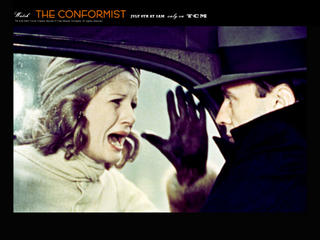Antonioni's The Passenger
Michelangelo Antonioni's rarely seen masterpiece The Passenger starring Jack Nicholson, has just been revived in a new print with a director's cut. If everything goes well, I should be able to catch the screening next week when it opens at the music box theatre. For now here are some interesting articles I found on the film (yes, I have a bad habit of reading about the film before I go to see it).
An interesting article in Cinema-Scope has lots of details on the history of the film and its critical reception at the time of its release. What caught my eye however was this enlightening comment:
Antonioni'’s “thriller” is not merely dissimilar to Hitchcock: it can be read-—and this is reinforced with every viewing-—as the most elaborate critique of HitchcockÂ’s shallowness that any director has ever made.
Indeed. And why only Hitchcok thrillers, Antonioni's films are a critique of the shallowness of all films which rely on narrative resolution to drive their point across. The way he did away with narrative, psychological determinism (that moth-eaten concept inherited from the realist novel of the nineteenth century) was nothing but revolutionary. Antonioni in this respect is "modern" auteur in true sense of the word.
The Passenger, even though it had Jack Nicholson in the lead, has long been out of circulation. Quite paradoxically it was Nicholson himself who owned the rights of the film. Koehler in the same article explains this:
What caused this unexpected, delayed timing to meet up with current events? According to Nicholson's attorney Ken Kleinberg, the actor had long wanted to purchase the worldwide rights to a film he loved as an art collector might; if he wasn'’t able to hang it on a wall, he could at least protect the film from potential corporate skullduggery and exercise some control over its proper exhibition.And as Manhola Dargis in The New York Times says, and I echo her feelings, "how delightful for Mr. Nicholson and how maddening for the rest of us who, for years, could watch "The Passenger" only on a crummy-looking home video." In my case I have not seen it even on video.
Here is Jim Hoberman from Village Voice and here is a review from New York Observer which succintly summarizes Antonioni's point, perhaps ironically (not an easy task by any means!):
The point of The Passenger (and Mr. Antonioni'’s psychic philosophy) is that life is not worth living. Trade in your own for a different model and you'’ll only discover that nobody else'’s life is worth living, either.
In case you are interested in something contrarian, Andrew O'Hehir of Salon thinks that Antonioni's philosophy is "sophomoric" and the only influence L'Avventura had, was on fashion photography. Arrrgh!



